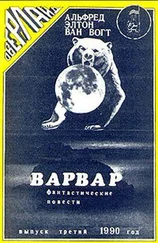And she too begins dreaming. Arabia comes between you. All is over.
With the Chinese woman it is not at all like that. The Chinese woman is like the root of the banyan , which turns up again everywhere, even among the leaves. Thus she is, and when you have admitted her into your bed, you will not be rid of her for days.
The Chinese woman takes care of you. She considers you are under treatment. Not for a moment does she turn over on her side. Always twined around you, like ivy that does not know how to live alone.
And the most restless man finds her again, near and comfortable like the sheet.
The Chinese woman places herself at your disposal — without cringing, she is not that way, but tactfully and with intelligence.
And she is so affectionate.
A moment comes, following other moments, when almost everyone feels like resting.
You, perhaps; not she. This ant looks immediately for some work to do, and there she is, proceeding to tidy up your valise.
A real lesson in Chinese art. You look at her in amazement. Not a safety pin, not a toothpick does she leave unturned, rearranging them in that perfect order apparently acquired by centuries and centuries of practice and experience.
Every object she becomes familiar with by gestures, trying it, experimenting and judging, and before putting it in place she plays with it. Then, when you see all this in order, the contents of your valise seem now to be rather doll-like, doll-like yet hard, and somehow regulated once for all.
When the Chinese woman talks of love, she can talk indefinitely; she never tires of it; she can even talk about something else, as she often does, she has the language of love, love is made of monosyllables (as soon as a word is lengthened, it looks as if it were going away and taking everything with it; as soon as a sentence appears, the sentence separates you).
The Chinese language is made up of monosyllables, or the shortest, or the most inconsistent ones, and with four singing tones. The singing is discreet. A kind of breeze, or birds’ language. A language so moderate and affectionate that one could hear it all one’s life without getting bored, even when not understanding it.
Such is the Chinese woman. And yet, all that would be nothing did she not answer to the admirable definition of the word ‘mitschlafen,’ to sleep with. There are men who are so restless that they even throw their pillows on the ground without realizing it.
What does the Chinese woman do? I do not know; a sort of sense of harmony, subsisting in her sleep, enables her, by appropriate movements, to remain attached, always to sub-ordinate herself to what, all the same, would be so wonderful — to be harmoniously two.
In Europe everything ends tragically. There has never been any philosophy in Europe (at least since the Greeks… and even with them it is questionable).
The French with their social tragedy, the Greeks with their Oedipus, the Russians with their love of misfortune, the Italians with their pride in tragedy, the Spanish with their tragic obsession, Hamletism, etc., etc.
If Christ had not been crucified, he would not have had a hundred disciples in Europe.
His Passion is what excited people.
What would the Spaniards do if they did not see the wounds of Christ? And all European literature is about suffering, never about wisdom. One has to wait for the American Walt Whitman and the author of Walden to hear another note.
Therefore, that of the Chinese, which is almost devoid of heartbreak poetry, of complaint, has no charm whatsoever for the European, excepting a hundred or so librarians, who by dint of reading know nothing whatsoever about anything.

The Chinese sees nothing tragic at all in death. A Chinese philosopher declares very simply: ‘An old man who does not know how to die I call a good-for-nothing.’ There you have it.
In fact, one-third of China is a cemetery. But what a cemetery!
The Chinese country, when I saw it for the first time, went right to my heart. Tombs, whole mountains (or rather the side of one, the eastern slope of another) covered with tombs, but not hard, straight tombs, no — semicircles of stones… that are inviting. Unmistakably, they are inviting. Indeed, they do not frighten anyone. Every Chinaman has his coffin while he is alive. He is quite at ease with death.
When a man dies in a distant province, a room is made ready, while waiting to find a way to transport him back to his country — a room where the members of the family, the son, the daughter, etc., come from time to time, to meet, to meditate a little, to eat, talk and play majong.

The paintings , the theater , and Chinese handwriting , more than anything else, show this extreme reserve, this inner concavity, this lack of aura of which I spoke. Chinese paintings are mainly landscapes. The movement of things is indicated, not their thickness and their weight, but their linearness, if one may say so. The Chinaman possesses the faculty of reducing the being to what signifies the being (somewhat like the mathematical or algebraic faculty). If a combat is to take place, he does not go into combat, he does not even pretend to do so. He signifies it. That is all that interests him; the combat itself would seem coarse to him. And this signification is established by something so slight that a simple European cannot hope to decipher the piece. All the more so as there are hundreds of them. In addition to that, a quantity of elements are taken apart and then put together again in fragments, as one would do in algebra.
If the subject is a flight, everything will be represented except the flight — the sweat, the glances to right and left, but not the flight. If they show you old age, you will have it all there, except the look of old age, and the gait of old age; but you will have, for example, the beard and the lame knee.
In the creating of Chinese characters, this lack of a gift for mass effects, and for the spontaneous, and this taste for taking a detail to signify the whole is more striking still, and it is why Chinese, which might have been a universal language, has never, except in the case of Korea and of Japan, crossed the Chinese frontier — and moreover is supposed to be the most difficult of the languages.
The trouble is that there are not five characters in the twenty thousand that one can guess at first glance. Not a hundred simple characters even in the primitive writing. The Chinaman wants general effects.
Let us take something that should be quite easy to represent: a chair. It is formed by the following characters (they themselves unrecognizable):
1) tree; 2) tall; 3) to sigh with pleasure, in admiration: the whole makes chair , and is recomposed, no doubt, as follows: man (sitting on his heels or standing up). Sighing with pleasure near an object made of the wood of a tree . And if one only saw the different elements! But if one does not know them in advance, one will not discover them.
The idea of representing the chair itself with its seat and its legs does not occur to him.
But the chair that suited him he has found; not obvious but discreet, pleasantly suggested by elements of the landscape, deduced by the mind rather than designated, and yet uncertain and as though ‘played at’.
This character, which is one of the easiest of the composed characters, shows plainly enough how repugnant it is to a Chinaman to see an object as it is, and on the other hand, the delight he takes in general effects, in the landscape with figures. Even if the Chinaman represents an object as it is, in no time he reshapes and simplifies it. Example: The elephant, during the centuries, has taken eight forms. 1
Читать дальше














